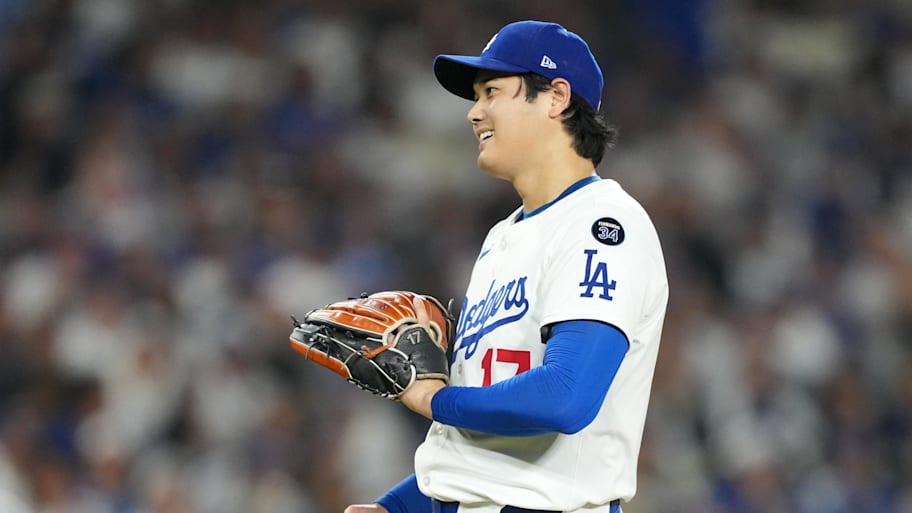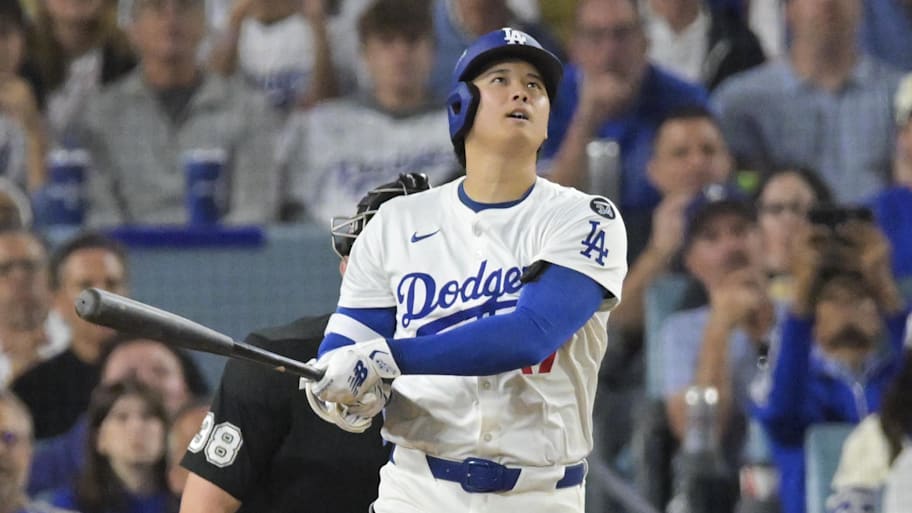LOS ANGELES — Two hours after the best player in the history of baseball played the best game in the history of baseball, he headed home from the office. Shohei Ohtani was not holding the National League Championship Series Most Valuable Player award or the 2025 World Series swag he had earned that night; the half-dozen members of his agency and his security team trailing him could handle that. And besides, his hands were full: He was pushing a Nuna stroller containing his six-month-old daughter and, in the basket below her, his Nederlandse Kooikerhondje.
Almost more impressive than the feats Ohtani achieves on a nightly basis—the devastating splitters, the towering home runs, the fact that sometimes, as on Friday, three minutes pass between the two—is this: He is both the most and least normal person at the ballpark.
The former posture helps him attain the latter performance. He spent two weeks listening to reporters, fans and his own manager question whether his pursuit of pitching greatness was hindering his mastery of hitting greatness. After an excellent regular season—a league-leading 1.014 OPS, plus a 2.87 ERA in 47 innings—he scuffled at the plate in the playoffs. In the National League Division Series, he was 1-for-18 with nine strikeouts, and his swing decisions mystified his bosses.
“We’re not going to win the World Series with a performance like that,” manager Dave Roberts lamented before the NLCS began.

Through the first few games of the series against the Brewers, the results weren’t much better: two hits and five strikeouts in 11 at-bats. The people around Ohtani began to see frustration, which he leavened with humor, but they say that—short of taking batting practice on the field at Dodger Stadium for the first time all year, during which he parked half the pitches he saw in the stands—he did not change his metronomic routine at all. On his start days, Ohtani tends toward “a little bit more focused and quiet,” says hitting coach Robert Van Scoyoc, but otherwise, says first baseman Freddie Freeman, he’s “goofy.” Ohtani plays pranks on coaches, drops swears in English at the perfect moments and teases teammates and opponents alike. He practices his Spanish with Dominican right fielder Teoscar Hernández. He plays video games on his phone. He hangs out with his family and stages photo shoots with his dog, Decoy. When he joined the Angels from Japan in 2018, and again when he joined the Dodgers last season, his teammates were most astonished not by his extraordinary abilities as a player but by his seeming ordinariness as a person.
That was who they saw amid his slump. He did the same hitting drills and the same scouting work. (His participation in hitters’ meetings typically amounts to reminding his teammates to look for a pitch “middle-middle.”) He reminded himself—and anyone who asked—that opponents were attacking him with lefties, and that although he was struggling, that strategy allowed the Dodgers’ right-handed stars, among them shortstop Mookie Betts and Hernández, to hit with the platoon advantage.
When Japanese reporters asked Ohtani about Roberts’s comments, he said in Japanese, according to the Los Angeles Times, “The other way to say it is that if I hit, we will win.”
If that confidence ever wavered, he kept his doubts to himself. And why would he change anything? “I do feel like,” he pointed out through interpreter Will Ireton before NLCS Game 3, “I was able to just have a pretty good season offensively.” Teammates began predicting he would break out in Game 4—not because anything had changed, but because nothing had.
You already know the rest: three home runs, six-plus innings of two-hit, 10-strikeout ball to set records no one even knew existed and to help the Dodgers capture the pennant. By the fourth inning, his teammates had stopped cheering and started laughing. Fans chanted M-V-P, presumably only because they could think of no higher award to grant him.
“A lot of times when you have expectations like he has, they’re just unattainable and you just never realize them,” said Roberts afterward. “Certainly the way he was struggling this postseason and not to let it affect him and keep his psyche, his confidence the same is really impressive. So we knew that he was going to come through at some point.”
Meanwhile, Ohtani made it less than 20 minutes before he left the champagne celebration to retreat to the clubhouse, shower, don a dry 2025 World Series T-shirt and baseball cap, and address the media. “There were times during the postseason where Teo and Mookie picked me up,” he said. “And this time around it was my turn to be able to perform.”
He returned to the field to celebrate briefly with his teammates, then shouted to his wife, Mamiko, who was waiting for him in her suite above the third-base line. He trotted down the steps into the bowels of Dodger Stadium to reunite with his family. They gathered their passengers, both human and canine, and left the site of his most recent triumph, at which point he turned to his next task: selecting two photos of Decoy in front of a fall-themed backdrop to add to the 67-image gallery labeled “デコ” (a nickname for the pup) saved to his Instagram profile. The superhuman part of Ohtani’s night was over. He was back to being human.
More MLB on Sports Illustrated
This article was originally published on www.si.com as How Shohei Ohtani’s Ordinariness Allowed Him to Shake His Slump Spectacularly.
